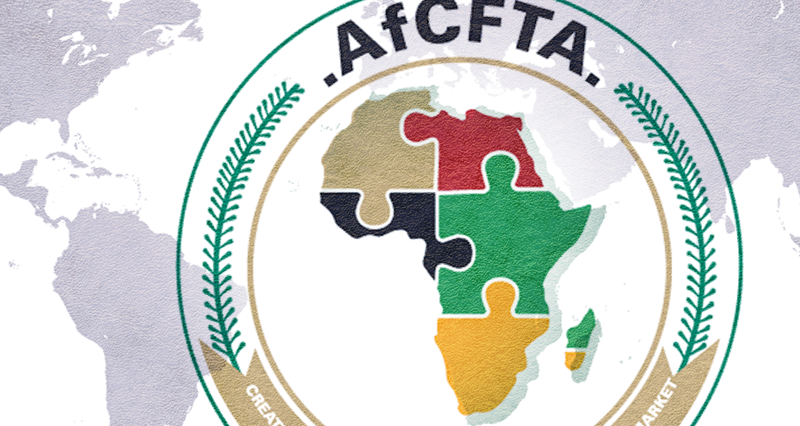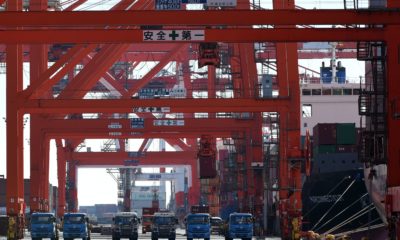The federal government has stated that the strategic objectives of Nigeria’s participation in the African Continental Free Trade Area (AfCFTA) are to capture 10 percent of Africa’s imports as well as to double the country’s export revenue by 2035.
In addition, the government said it aims to become “the preferred supplier of value-added products and services to Africa.”
These were disclosed by the Secretary of the National Action Committee on AfCFTA, Mr. Francis Anatogu, during a seminar organised by the Lagos Chamber of Commerce and Industry (LCCI) with the theme: “AfCFTA: The Roadmap for Exporters Successful Participation.”
He said the strategic objective would be achieved by growing the export capacity of every state in the country to $1.2 billion as well as by focusing on specific product/service chains.
Nigeria would also, “grow local demand for new Made-in Nigeria automobiles to 200,000 units and local content to 40 percent over five years,” he said.
Anatogu, who is also the Senior Special Assistant to the President on Public Sector Matters, clarified the questions being asked by Nigerian businesses on when and how to participate in the AfCFTA. He stated that first and foremost trading was yet to commence under the free trade area agreement.
Other key goals of the strategic objective, according to him, also include growing, “highly productivity workforce to earn premium wages in Nigeria and Africa” as well as engendering a “friendly business environment to attract investments and boost competitiveness.”
The objectives also include to “grow local demand to boost local content, capacity and utilisation, preserve local market share and lay the foundation for exports; develop critical trade infrastructure such as power, logistics, transportation, shared facilities; and secure access to African markets through partnerships, security of supply, national brand, process compliance,” he added.
According to him, the federal government also intends to establish an efficient AfCFTA trade arrangement with the necessary safeguards and coordination framework.
Anatogu stated that some of the actions needed to actualise these objectives include, “investment in API production to catalyse the local pharmaceutical value chain; commercialization of research findings to improve yield and promote innovation and leveraging technology and cluster development strategy to grow capacity of MSME, reduce informal trade and aggregate them for export.”
He explained that businesses would export by following the existing normal export process, but would back it up with AfCFTA’s certificate of origin, adding that exporters, “will also meet all the export requirement of the destination country.”
Anatogu stated that Nigeria, “has also identified 25 Nigerian companies from different stakeholder organisations to do the trial run of going through the processes of ascertaining the compliance of their products to the AfCFTA’s Rule of Origin (RoO). This is what we are doing at the national action committee to make sure that this starts at a very robust level.
“As part of this process, companies will have AfCFTA number, which will identify them in any African country. They will also have product approval of registration, ”he said.

 Forex3 weeks ago
Forex3 weeks ago


 Naira2 weeks ago
Naira2 weeks ago
 Billionaire Watch2 weeks ago
Billionaire Watch2 weeks ago




 Naira2 weeks ago
Naira2 weeks ago




 Naira2 weeks ago
Naira2 weeks ago




 Naira1 week ago
Naira1 week ago




 Naira4 weeks ago
Naira4 weeks ago




 Naira3 weeks ago
Naira3 weeks ago


















